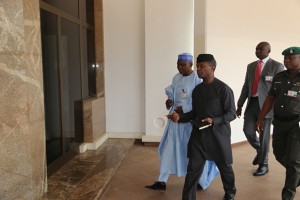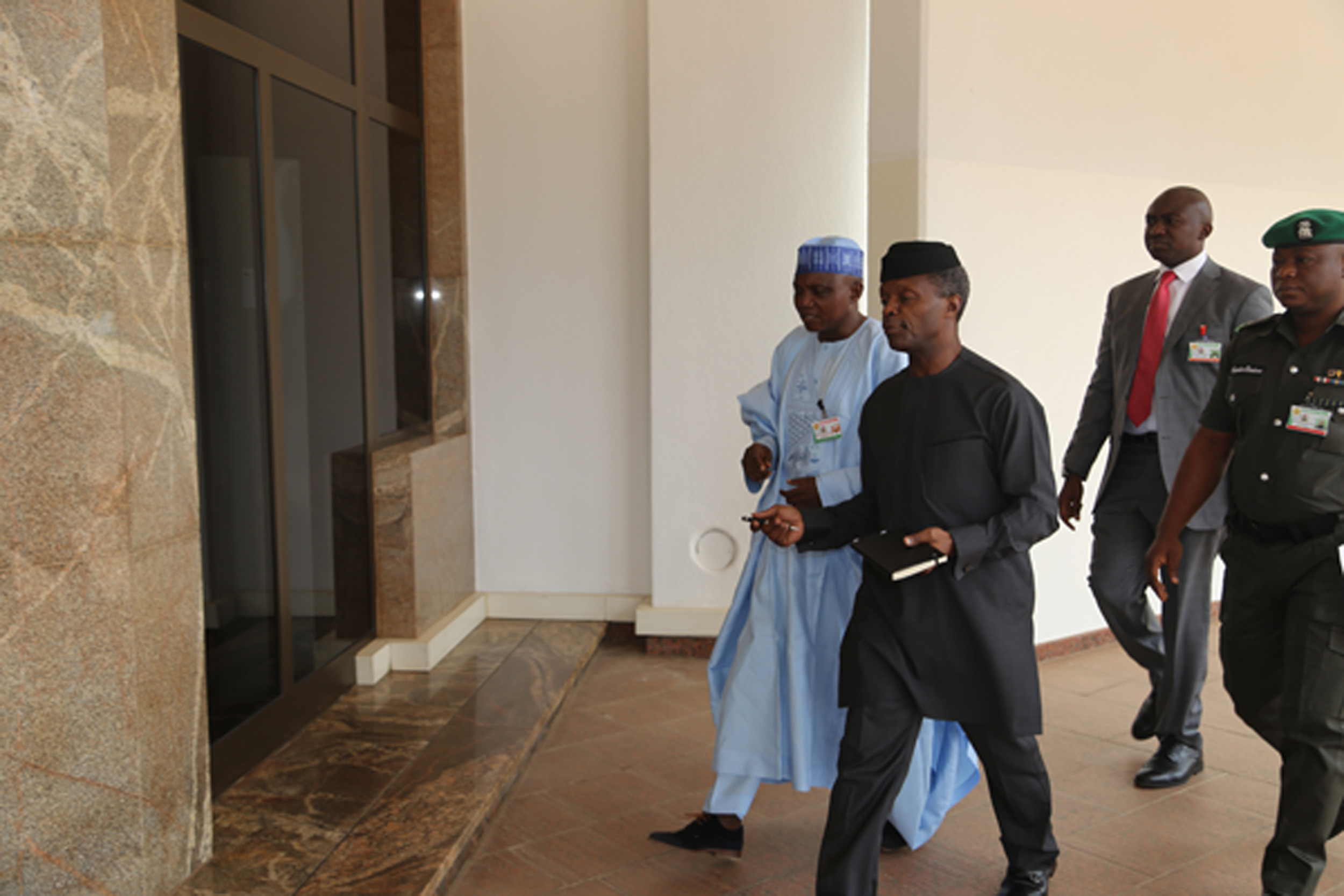 TVC E, BUSINESS – The Federal Government is considering changes to Nigeria’s tax regime as part of efforts to bolster the economy amid the financial crunch brought by falling oil prices.
TVC E, BUSINESS – The Federal Government is considering changes to Nigeria’s tax regime as part of efforts to bolster the economy amid the financial crunch brought by falling oil prices.
Indications that the government will increase Value Added Tax emerged on Saturday.
The idea had been suggested by the International Monetary Fund, whose Managing Director, Ms. Christine Lagarde, visited the country early this month.
Vice President Yemi Osinbajo, who said changes to taxation were being considered, told CNBC in a television interview, “We are looking at increasing our tax coverage.
He added, “VAT, for instance — we have been doing just about 20 per cent coverage. We think that just by increasing coverage, we could do much more, and so we could earn more in terms of local resources,” he said.
Increasing VAT from 5 per cent, among the world’s lowest VAT rates, and broadening the tax base were among suggestions put forward by the IMF boss during her visit.
VAT is a consumption tax payable on the goods and service consumed by any person, whether government agencies, business organisations or individuals. It is currently levied at the rate of five per cent in the country.
The sharp drop in crude revenues, which provide 95 percent of foreign earnings, has led to the Naira hitting record lows on the parallel market as foreign exchange reserves dwindle.
Crude oil is Nigeria’s number one revenue earner.
Crude prices have fallen in the last few days to their lowest levels since 2003 at just over $27 a barrel, although they staged a rebound on Friday.
The 2016 budget assumes an oil price of $38 per barrel.
Finance Minister Kemi Adeosun has said Nigeria plans to borrow up to $5 billion from multiple sources, including the Eurobond market, to plug its budget deficit and Osinbajo said changes to taxation were also being considered.
During her visit, Lagarde also said the IMF did not support foreign exchange restrictions.
The Central Bank, whose monetary policy committee will meet tomorrow and Tuesday, imposed FX restrictions last year aimed at conserving foreign exchange reserves and there have been calls from investors for these to be eased.
“We know that the Central Bank will just have to do the right thing at this time,” said Osinbajo.
“The Central Bank has told us and it was announced even in the President’s budget speech, that they intend to take a flexible approach and deploy whatever tools are necessary to ensure that we stay competitive.”
















